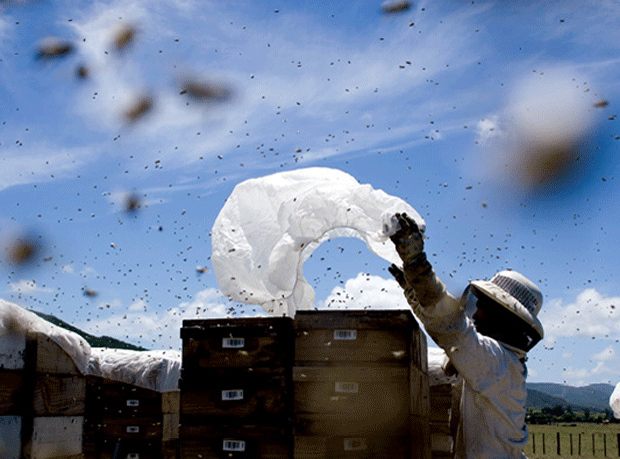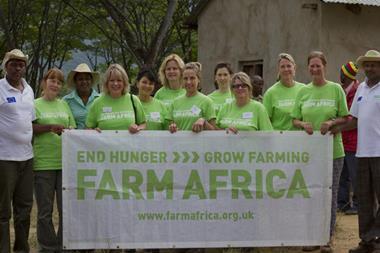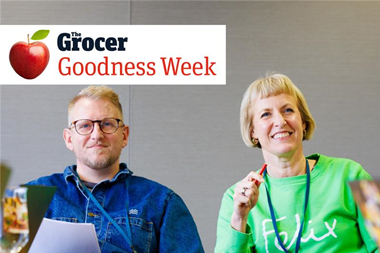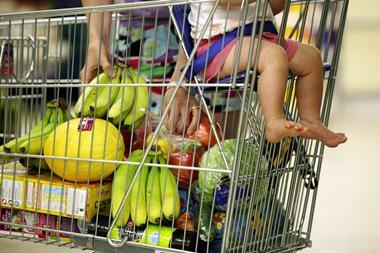You won’t catch women climbing trees in Tanzania’s Nou Forest. For practical and cultural reasons, the lucrative task of raiding treetop beehives for honey has always fallen to the men living in one of the 18 surrounding villages.
Until now that is. This month, nine female food and drink industry leaders arrived in the small Tanzanian town of Babati tasked with constructing 90 ground-level beehives in just three days.
No easy task. Particularly in the blazing African sun and 30-degree heat. But these easily accessible hives will provide an invaluable stream of income to the women of the Erri community.
“It’s especially difficult for women in Africa,” says Judith Batchelar, director of the Sainsbury’s brand, and one of the women who joined the build. “Giving them independence is incredibly important so they can develop businesses and an income for themselves.”
It is the second time some of the industry’s most senior women have taken a break from the boardroom as part of Farm Africa’s Food for Good initiative, after a trip to dig an Olympic-sized pond for budding fish farmers in 2013. The charity works with African farmers to help drive up their incomes, driven by the belief they are key to long-term rural prosperity in Africa.
And so this month the volunteers travelled to the barren landscape of Babati where they would sleep, eat and build for the next three days. Working alongside villagers, they hammered nails, wired frames and painted all 90 beehives in fewer than 72 hours.

“It was a daunting prospect but after a huge team effort on day one we managed to get ahead of ourselves,” says Susie McIntyre, MD at Kettle Produce. Kate Ewart, product development director at Tesco, adds: “It’s been great to leave something behind for the community so they can have a better standard of living.”
Because quick as they may have been erected, the hope is that the impact of the hives will be far more long-lasting. “If you can make sure women earn more, you increase the possibility that the kids and the rest of the family are benefiting more,” explains Yvan Biot, director of programmes at Farm Africa.
That’s because “women are in charge of the recurrent expenditure of the household, the bit that goes into food, schoolbooks, children’s health and so forth”.
It’s a scheme that has already benefited women such as Lucia Chami. Since joining a Farm Africa beekeeping group in 2009, the 45-year-old has increased the beehives she owns from eight to 25, and now produces 450kg of honey a year. “As a farmer I used to keep cattle and sell milk, but my income was very low as I had no other alternative source of income. But after joining the forest project and keeping bees, my income has improved,” she explains.
In fact it has improved enough to cover not only household expenses, such as food and schooling, but to run a small convenience shop too, with honey sales now bringing in £1,350 a year - more than twice the average annual income in the country.
Success such as this has seen the Farm Africa beekeeping project extend to 30 different villages in the region, with 535 people signed up as beekeepers.
Building beehives is just one of several ways in which the charity works with the communities bordering the 300 sq km Nou Forest. Growing mushrooms, setting up tree nurseries and raffia weaving have all been trialled with varying degrees of success to bring an end to activities that led to deforestation of the prime conservation site. “If these local communities have alternatives that are less destructive then they’re all for it because these forests are incredibly important to them for water supply and local climate,” adds Biot.
Average annual income has jumped by more than 70%, from £290 ($450) in 2009 to £510 ($780) now. A fact that must make three days of hard graft worth it.
April Preston, group director of innovation and NPD at 2 Sisters Food Group, thinks so. “It’s about building something sustainable, supporting people’s livelihoods,” she says.



















No comments yet